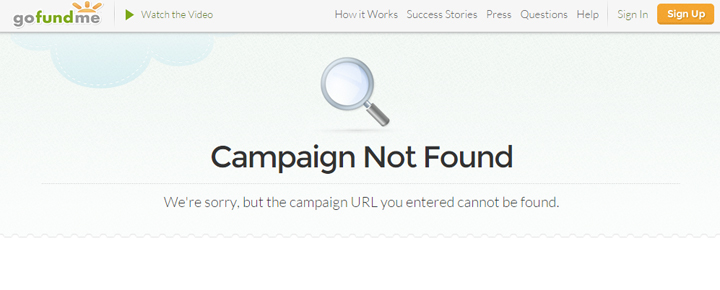TORONTO – Crowdfunding websites like Kickstarter, Indiegogo, and GoFundme minimize risk and protect their users from fraud, in part, by relying on their users to find it themselves.

Frauds can happen – a recent post by the unidentified creator of a fundraiser for a South Carolina officer accused of shooting Walter Scott alleges the fundraiser was a fraud.
This person claimed in a Facebook post that the campaign was created to raise money for their car payments.
“Well the jig is up; IndieGoGo pulled my support and returned all donations. I admit I was trolling and was looking to get enough donations to pay my car off,” the person wrote on the Michael T. Slager Support Fund Facebook page.
“I never promised a single dime to Michael Slager and was careful not to say that I was. I was, as a gesture of fair play, going to seek a way to get him some small token of the donations (I was, of course, using his name and likeness).”
A similar fundraising effort was pulled off GoFundMe.com last week.
The owner of the Facebook page has not responded to requests for comment.
READ MORE: Proliferation of crowdfunding campaigns could hurt registered charities
Fraudulent campaigns do happen but they are rare. A World Bank report on crowdfunding states “no successful fraud has been perpetrated through pledge-based crowdfunding platforms.”
The report goes on to say would-be fraudsters were thwarted by “the transparency inherent in crowdfunding.” Or – the large crowd of possible investors vetted the projects themselves.
“The crowd has been very successful at uncovering suspect campaigns,” Craig Asano, the executive director of the National Crowdfunding Association of Canada said in an interview.
Websites like Kickstarter rely in part on their users to vet the campaigns. The Michael T. Slager Support Fund reportedly only received about $1,100 in large part because of the criticism it faced.
Asano said would-be investors should educate themselves about not only the project – making sure it’s legitimate, and realistic – but also the website, making sure it uses accepted methods of payment.
But crowdfunding sites also have their own means of verifying legitimate campaigns and pulling down campaigns deemed unrealistic or illegitimate.
Indiegogo has an algorithm which seeks out fraudulent claims and employs a Trust & Safety Team which combs the site for bad projects, getting rid of anything that doesn’t meet the site’s terms or is deemed to be potentially fraudulent.
Kickstarter doesn’t transfer any money until the project is completely funded. This, according to a spokesperson, helps keep people from being tricked into funding a fake project. But Kickstarter also, in part, relies on the community to vet the project.
“If I pledge to your project on day one and you turn out to be a bad actor, our Integrity Team has 60 days to look into the project, field user input,” Justin Kazmark, a spokesperson for Kickstarter said in a statement.
“We believe the public has a good eye for this and by gating the release of funding to a threshold being crossed is an effective safety mechanism.”
Kickstarter, and Indiegogo both say in their terms and conditions that backers who aren’t able to meet their goals should seek to find a resolution with their backers.
There’s no automatic function on these websites that would refund the money in the case of a fraudulent project and no permanent insurance options. Indiegogo has tested insurance for failed projects but it’s not a permanent feature.
But defrauding someone on a crowdfunding website is a crime and police would look into it.
“It’s like saying you have an illness and then taking money from someone under a false pretense. So that is fraud, yes,” Toronto police spokesperson Jenniferjit Sidhu said.
“We would definitely take the report and follow it through.”
- What is a halal mortgage? How interest-free home financing works in Canada
- Capital gains changes are ‘really fair,’ Freeland says, as doctors cry foul
- Ontario doctors offer solutions to help address shortage of family physicians
- Budget 2024 failed to spark ‘political reboot’ for Liberals, polling suggests




Comments